Loki episode 1 recap: under the skin of a great MCU villain
Huge spoilers ahead
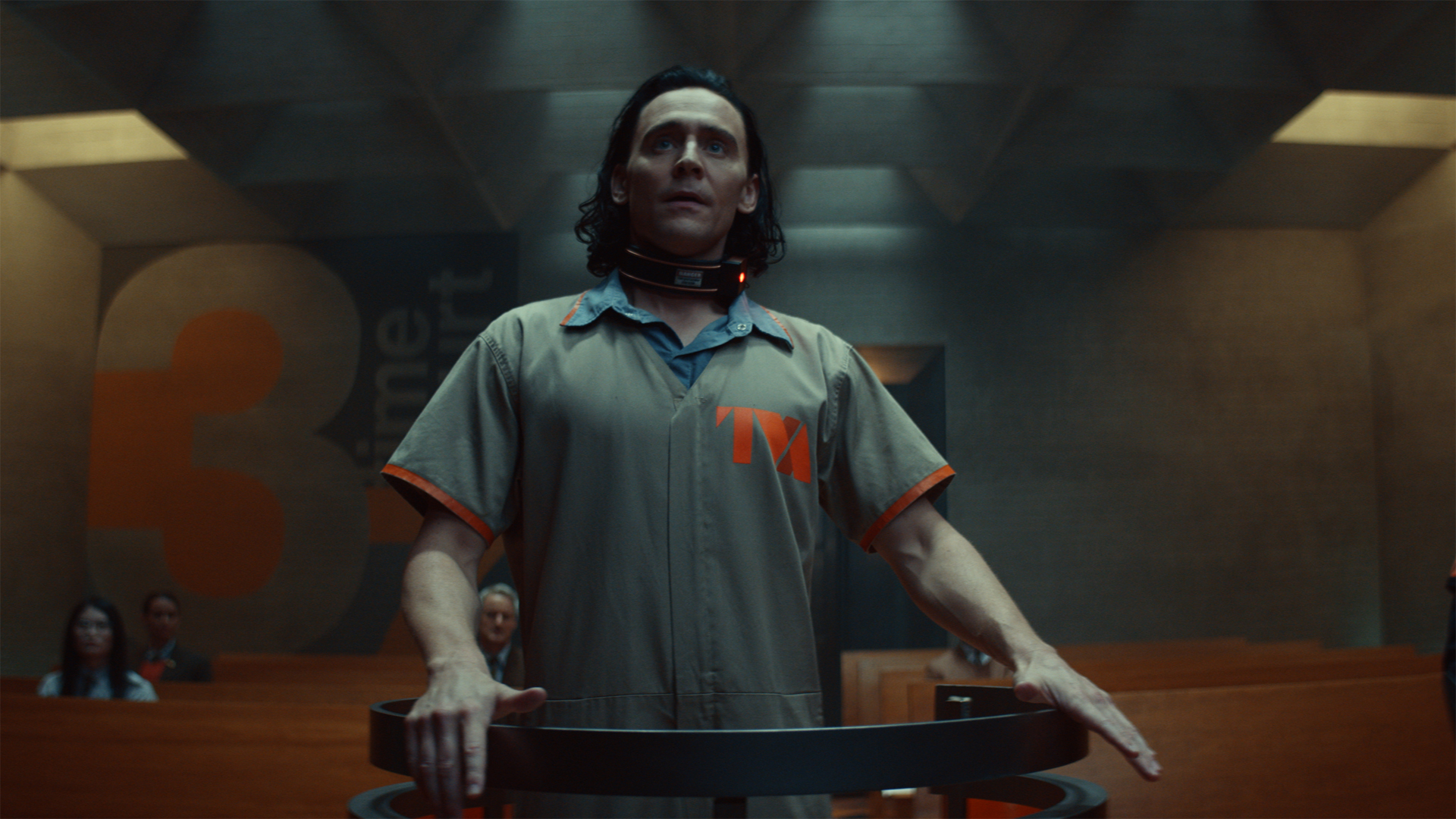
Sign up for breaking news, reviews, opinion, top tech deals, and more.
You are now subscribed
Your newsletter sign-up was successful
- Episode 1 (of 6), 'Glorious Purpose'
- Written by Michael Waldron
- Directed by Kate Herron
★★★★
Spoilers for the first episode of Loki follow. Watch it first before reading this.
Numerous factors have propelled the Marvel Cinematic Universe to its lofty position as the biggest screen franchise in history – such as storytelling prowess, an uncanny instinct for casting, and an expanding stable of memorable characters. But arguably the biggest reason for the MCU’s phenomenal success is a unique mix of familiarity and versatility, where characters you know and love – or, indeed, hate – can leap between genres without ever leaving the safety net of a vast shared universe.
The new Loki TV show is precision-engineered to exploit this unique strength. Tom Hiddleston’s god of mischief has been a mainstay of the franchise since upstaging his brother in the original Thor back in 2011 – and was arguably the MCU’s first great villain. Here, however, he’s in entirely new territory, plucked out of reality by a bureaucratic organization charged with keeping the space-time continuum playing out how it should.
It’s a match made in (an antagonistic version of) heaven, as Loki’s inherent instinct for chaos collides head-on with the Time Variance Authority – although Loki’s never run into the TVA in the comics, it’s hard to think of a more suitable adversary for a self-confessed “mischievous scamp”.
- Loki on Disney Plus will tie into multiple MCU projects
- How to watch the Marvel movies in order
- Loki was supposed to die in the worst MCU movie
Just as Guardians of the Galaxy brought space into the Marvel mix and Doctor Strange peeled back the magical corners of the MCU, the Loki TV show dives deep into the time travel mechanics introduced in Avengers: Endgame. But more importantly it’s the perfect showcase for a character who’s always got a memorable one-liner up his sleeve – and whose allegiances are constantly, intriguingly shifting.
The show kicks off during the events of Avengers: Endgame, as Loki – the unreconstructed 2012 version from the first Avengers movie – uses the Tesseract to escape captivity. Within seconds of crash-landing in the Gobi desert, portals are opening up around him, with TVA operatives (led by the efficiently named Hunter B-15) arriving to take him into custody.
Loki suddenly finds himself in the beigest environment seen on screen since the ’70s-set Gary Oldman adaptation of Tinker Tailor Soldier Spy, a Brazil-inspired office space powered by paperwork and analogue tape. With his Asgardian leather robes unceremoniously replaced with standard-issue prison overalls, and the prospect of queuing for (probably) the first time in his life, Loki hasn’t looked so out of his depth since his first meeting with the Hulk.
Sign up for breaking news, reviews, opinion, top tech deals, and more.
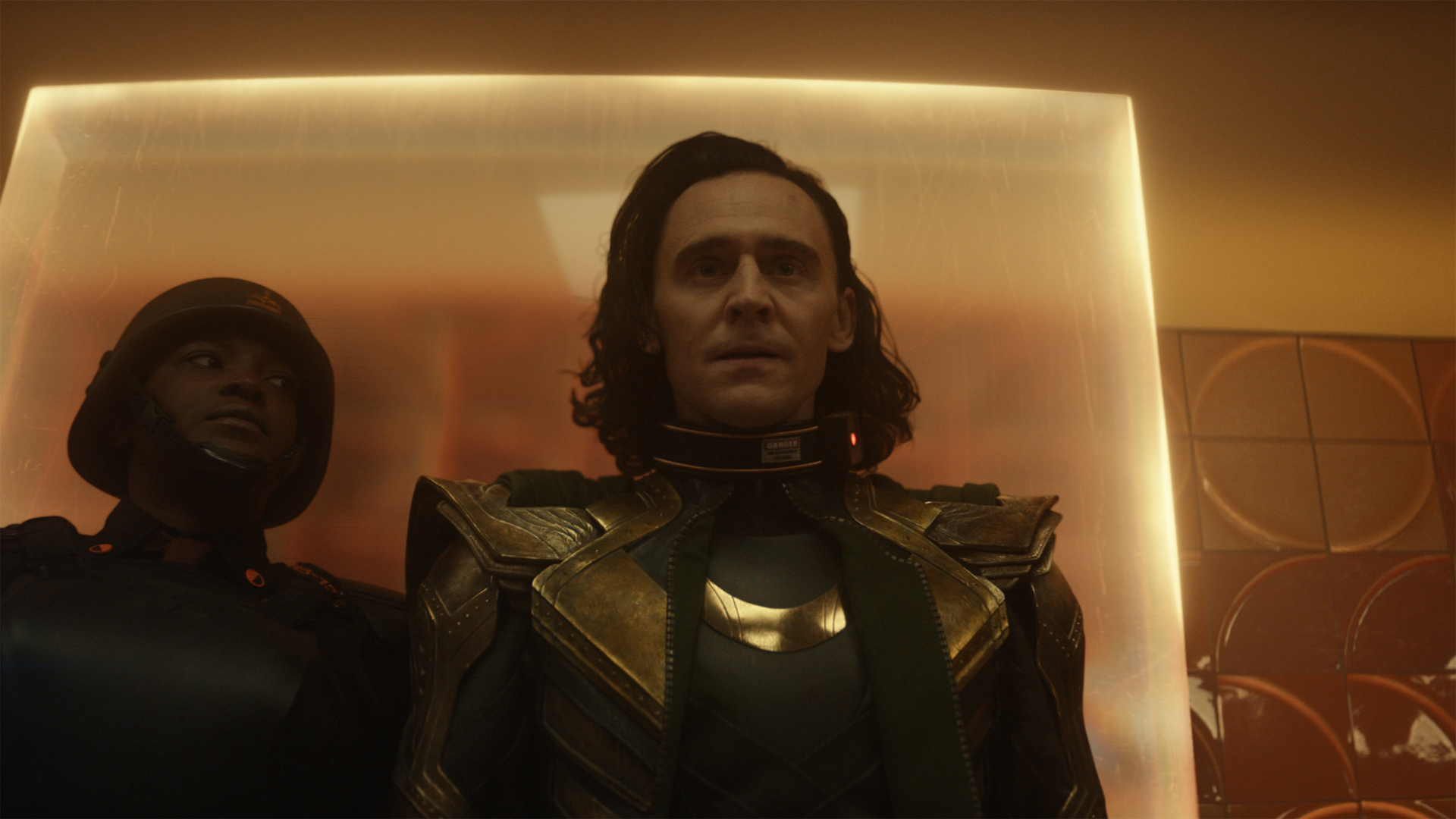
If the inner workings of the TVA are new to Loki, they’re similarly strange to us. Luckily, this excellent first episode gets the potentially troublesome exposition out of the way in an extremely efficient manner, by borrowing a plot device from Jurassic Park.
Animated explainer Miss Minutes is effectively Mr DNA rebranded, her retro cartoon stylings the perfect medium for explaining how a trio of all-knowing beings known as the Time-Keepers established the “Sacred Timeline” in the wake of a multiversal war. The TVA was set up to do their bidding, intercepting miscreants who veer off the path the Time-Keepers created. This all explains why Loki – who created an alternative timeline when he escaped from the Avengers – is on the TVA’s most wanted list.
Loki narrowly avoids being “reset” – not quite as bad as “pruning”, we suspect – when Agent Mobius (Owen Wilson) escorts the Asgardian from court, to ask him some questions of his own…
Loki’s bickering relationship with his adoptive brother has always been one of the best things about the Thor movies, but he may have found an even more entertaining foil in Mobius. The TVA agent knows exactly how to hit the Asgardian’s buttons, goading Loki about his multiple failures – “It’s funny, for someone born to rule, you sure do lose a lot” – and telling him he doesn’t rank among the most dangerous “Variants” the Authority are pursuing: “You’re just a little pussycat.” Aside from a few clever uses of a device known as a “Time-Twister” – “Time moves differently in the TVA,” Mobius frequently reminds us – it’s just two guys talking in a room, and it’s the best stuff in the episode. By turns funny and surprisingly emotional, you know that the next killer line is never far away.
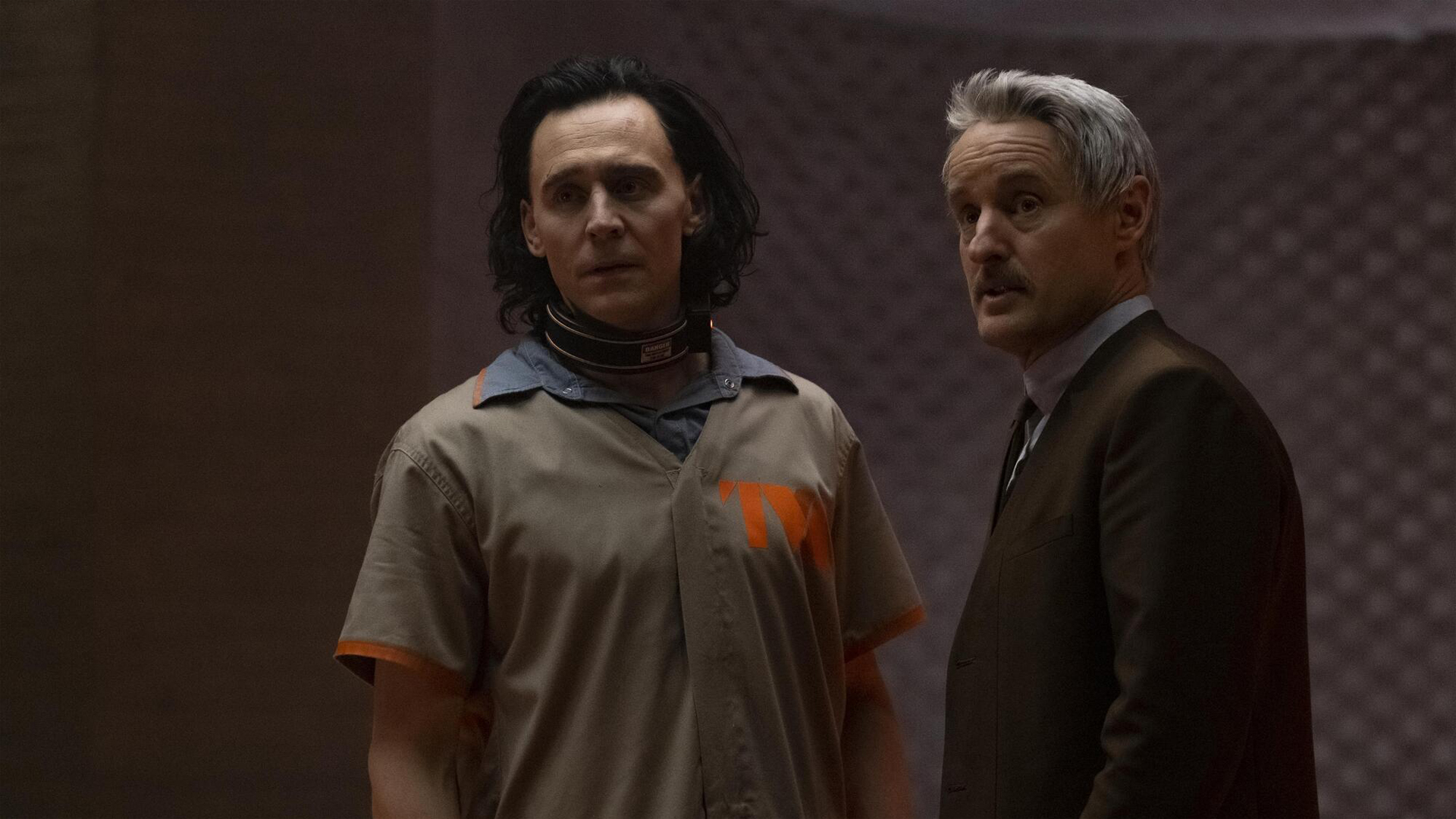
Mobius also does a brilliant job of getting inside Loki’s head, as he repeatedly asks whether the trickster god enjoys hurting people. Loki’s admission that it’s “part of the illusion, the cruel elaborate trick conjured by the weak to inspire fear” is an unexpected display of vulnerability and self-awareness, and Tom Hiddleston plays it perfectly.
The way he shifts from pompous, mock-Shakespearean bravado to genuine emotion (particularly when Mobius’s “greatest hits” reel reveals the life he should have led in the other timeline) shows why Marvel Studios has chosen to build a TV show around him.
So is Loki going to be the hero or the villain in the series that bears his name? This first episode suggests he’ll be a little bit of both, though even more tantalizing is the reveal that the dangerous Variant Mobius is tracking is actually another version of Loki. Perhaps the god of mischief really is about to meet his match…
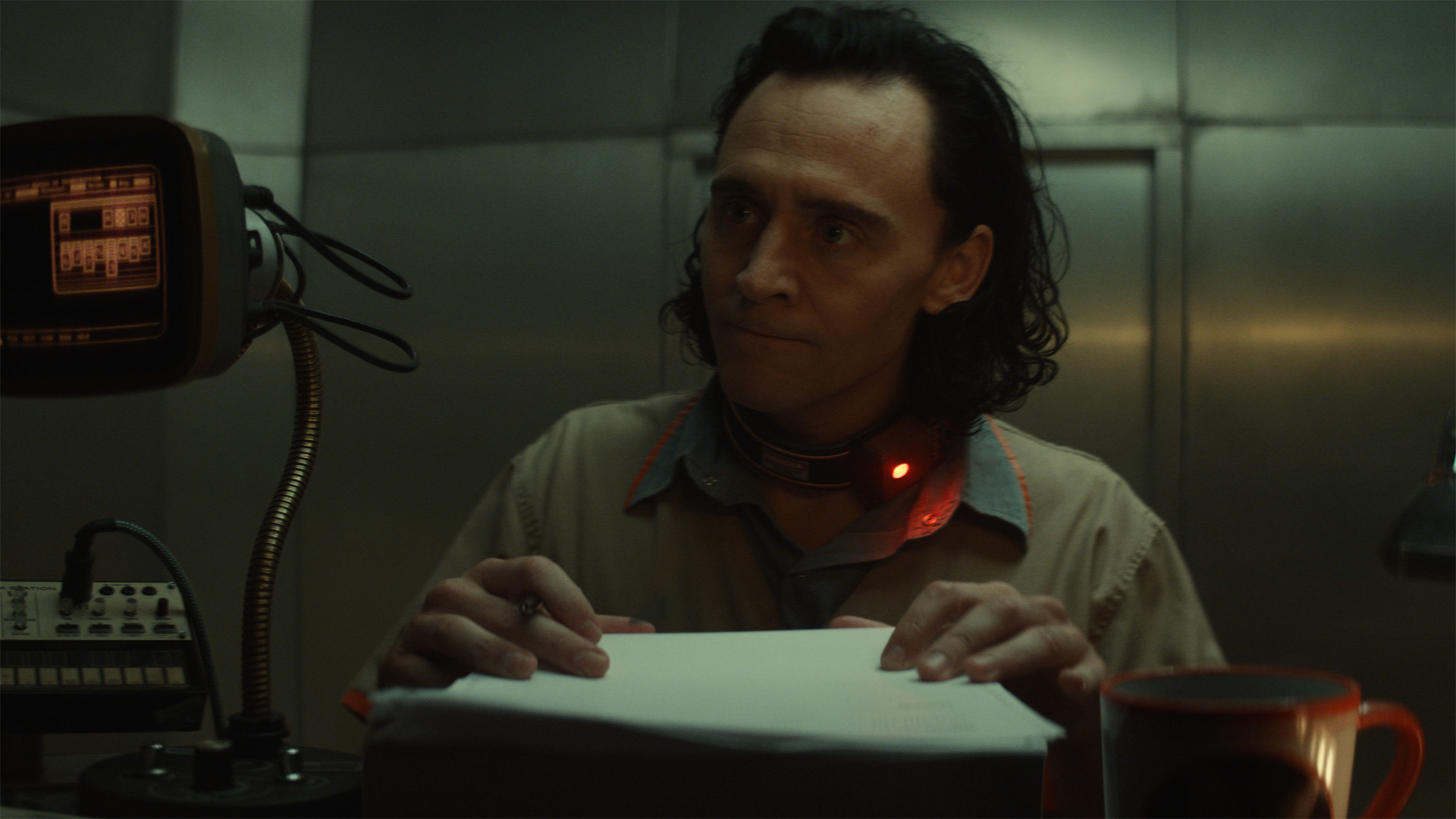
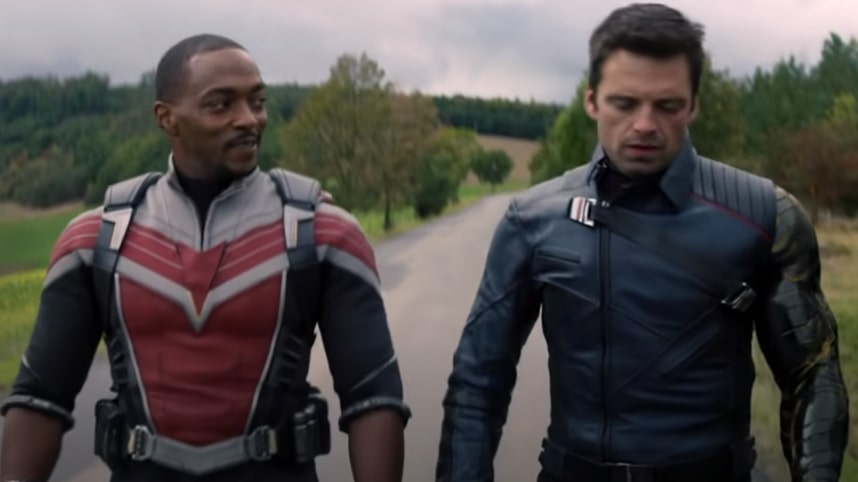
Look back on Sam and Bucky's post Avengers: Endgame adventures with our recaps on The Falcon and the Winter Soldier episode 1, The Falcon and the Winter Soldier episode 2, The Falcon and the Winter Soldier episode 3, The Falcon and the Winter Soldier episode 4, The Falcon and the Winter Soldier episode 5 and The Falcon and the Winter Soldier episode 6.
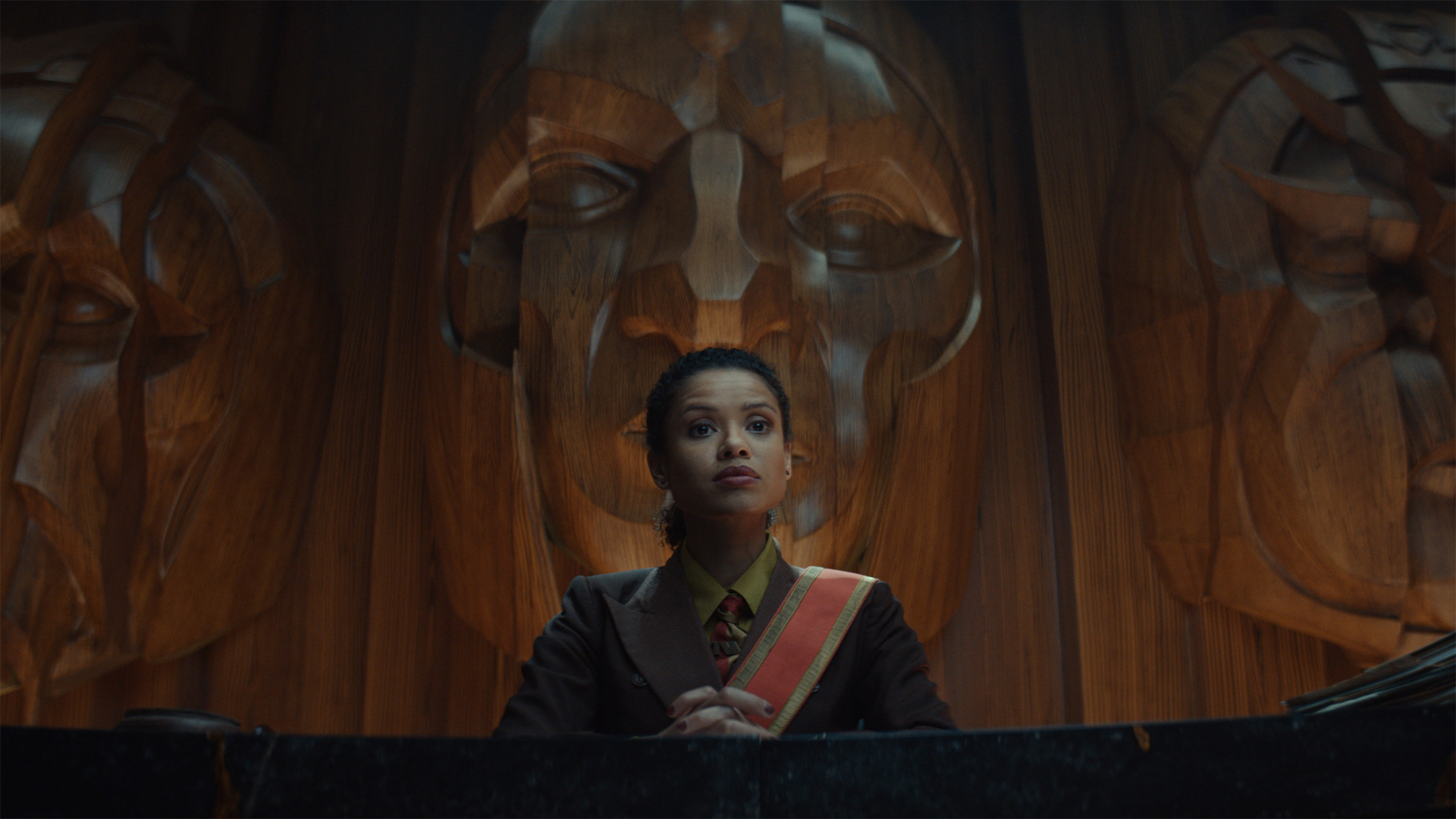
Verdict:
After the radically different WandaVision and The Falcon and the Winter Soldier, the third Disney Plus/Marvel series shifts gears again – yet still feels 100 per cent part of the MCU.
From his over-the-top threats to the character’s rarely seen tender side, Hiddleston entirely justifies Marvel Studios’ decision to bring the god of mischief back from the dead – especially when he’s sparring with Owen Wilson’s brilliantly laconic Agent Mobius. The Loki TV show is Marvel at its most quotable.
And in an episode that plays out like a textbook for world-building, the introduction of the out-of-time TVA opens the door to an intriguing new branch of the MCU, where the blandest office environment in history is a front for some complex temporal mechanics – not to mention an organization so powerful they use the Infinity Stones as paperweights. We’re still learning the rules of this brave new world, but if the fun tricks of the Time-Twisters are anything to go by, finding out more is going to be a blast.
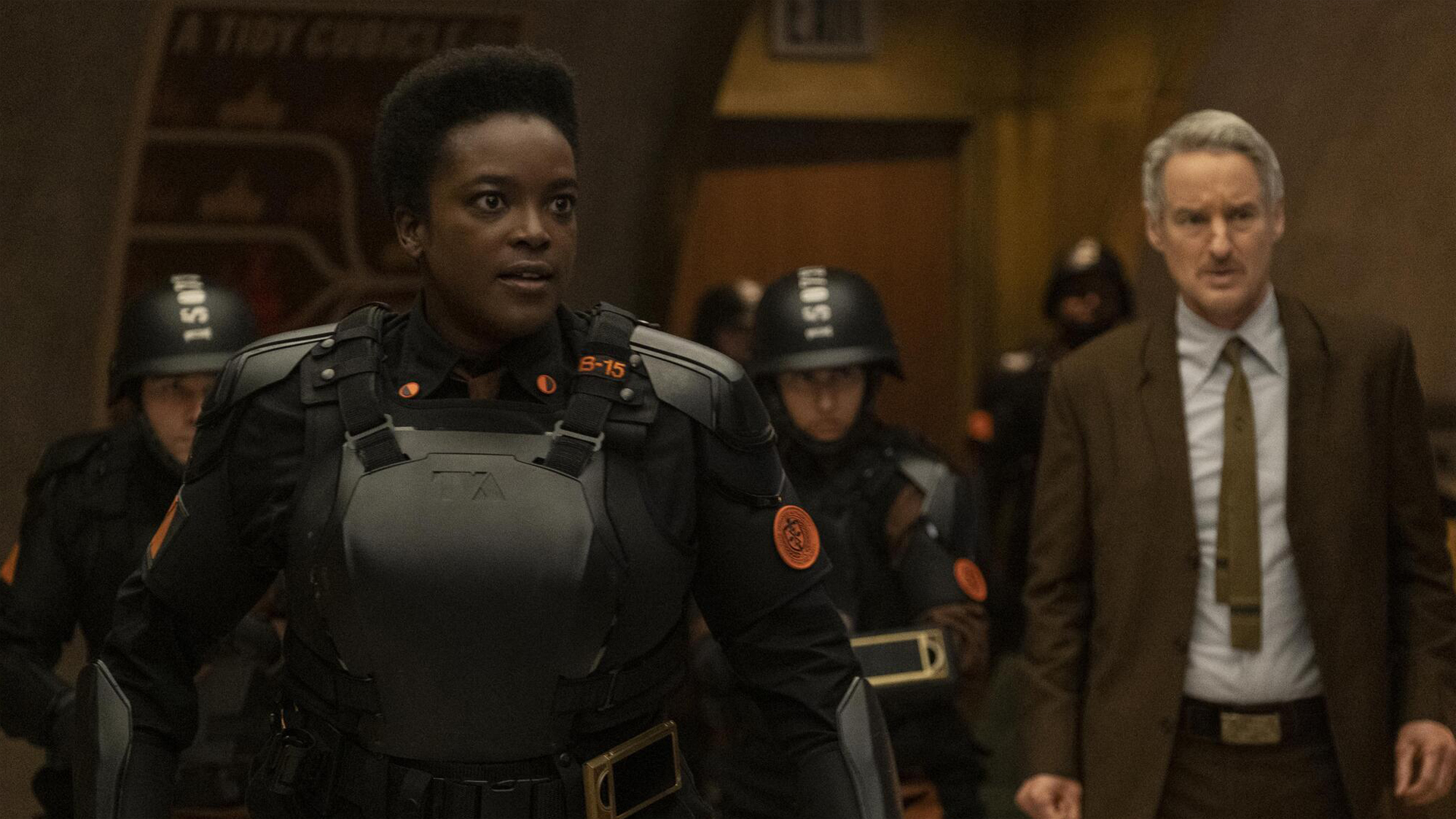
Marvel-ous facts
- The usual Marvel Studios logo has been given a Loki-appropriate green makeover, with Michael Giacchino’s theme also (temporarily?) replaced.
- Loki originally spoke of being burdened with “glorious purpose” – the episode’s title – in the first Avengers movie.
- The restraint that Thor puts on Loki’s mouth in 2012 is an Asgardian collar, a device that renders the wearer mute.
- Series director Kate Herron’s previous credits include four episodes of Sex Education.
- Head writer Michael Waldron has worked on Rick and Morty, and his Marvel involvement continues with the script for the upcoming Doctor Strange in the Multiverse of Madness. He’s also been lined up to write a Star Wars movie produced by Marvel Studios boss Kevin Feige.
- The Time Variance Authority first appeared in Marvel comics in a Thor story in 1986. The bureaucratic organization has the remit of managing numerous realities, and exists in the Null-Time Zone.
- Unsurprisingly, Herron has said that Terry Gilliam’s Brazil was a big influence on the bureaucratic office environment of the TVA – along with her own experiences working as a temp. Bizarrely, she’s also said that the Teletubbies were an influence on the show.
- Owen Wilson’s TVA agent Mobius M. Mobius (known as Moby) also originated in the comics, making his debut in Fantastic Four in 1991.
- Ravonna Renslayer, the Time Variance Authority judge played by Belle’s Gugu Mbatha-Raw, goes back way further – she made her first appearance way back in 1965, in the Avengers comics. That version of the character is (as far as we know) very different to the TV incarnation, however. The comic-book Renslayer was the daughter of a 40th century king of Earth called Carelius. Intriguingly, she went on to have a relationship with Kang the Conqueror, already confirmed as the villain in Ant-Man and the Wasp: Quantumania.
- The Time-Keepers who preserve the “Sacred Timeline” also have their origins in the comics, having debuted in Thor in 1979. They were created by He Who Remains, a being who’d been director of the TVA in a previous reality.
- The Minutemen are the TVA’s police force. They’re not to be confused with Watchmen’s Minutemen, who were that universe’s original superteam, featuring the Comedian, Hooded Justice, Nite Owl and Silk Spectre.
- We see three members of the TVA wearing sashes – Judge Renslayer and the two older officials Hunter B-15 bumps into in the corridor after her encounter with Loki. The Miss Minutes animation suggests there are two male Time-Keepers and one female, so could the trio be the three Time-Keepers in human form?
- While the Time-Twisters in the Loki TV show are devices used by the TVA to manipulate time, the comic-book Time-Twisters are a trio of beings who travelled backwards through history.
- The TVA's rules of engagement are clearly more complicated than they seem at first glance. While Loki's Tesseract-driven escape is deemed illegal, the Avengers' time travel exploits in Endgame are acceptable because they fit with the "Sacred Timeline".
- The animated Miss Minutes character mentions that stepping off your path in the timeline can create a “Nexus event”. This isn’t the first mention of a Nexus in the MCU. WandaVision episode 7 features a commercial for Nexus, an anti-depressant medication that promises to “anchor you back to your reality – or the reality of your choice”. In Marvel comics, the Nexus of All Realities is the point where all possible realities in the multiverse overlap – it’s also a gateway between dimensions.
- The voice of Miss Minutes is Tara Strong, whose numerous animation credits include The Powerpuff Girls, Teen Titans, Rugrats and My Little Pony: Friendship is Magic.
- The kid who gets a blue mouth from that Kablooie gum in 16th century Aix-en-Provence hints that the villain they’re chasing is the Devil. This is almost certainly bad Loki, of course, but could the episode also be hinting at the arrival of Mephisto, Marvel’s version of Satan? No – instead of another WandaVision-style ongoing conspiracy, Herron already shot this one down in a recent interview.
- There’s a brief sighting of the Bifrost – the rainbow bridge linking Asgard to Midgard (Earth) – when Loki jumps out of the plane under the alias of D.B. Cooper.
- In real-life, D.B. Cooper hijacked Northwest Orient Airlines Flight 305 in 1971. After making his leap from the plane, Cooper was never seen again.
- Eugene Cordero, who plays Casey (the TVA agent who’s never heard of a fish), voices Ensign Rutherford in Star Trek: Lower Decks. He’s also appeared in The Good Place and The Mandalorian.
- Loki composer Natalie Holt has another connection with star Tom Hiddleston – both have worked on the Kenneth Branagh-starring BBC adaptation of the Wallander novels (though not at the same time).
- It seems likely that the hooded figure who attacks Hunter U-92 and his Minutemen at the end of the episode is the alternative Loki. There’s much speculation online that this may be a female version of the god of mischief (based on Lady Loki in the comics), played by Sophia Di Martino – while we know Di Martino is in the show, who she’s playing is yet to be confirmed.
- MCU shows have become renowned as watercooler TV, so it’s appropriate that there’s an actual watercooler in the closing credits.
New episodes of Loki debut on Disney Plus every Wednesday.
Richard is a freelance journalist specialising in movies and TV, primarily of the sci-fi and fantasy variety. An early encounter with a certain galaxy far, far away started a lifelong love affair with outer space, and these days Richard's happiest geeking out about Star Wars, Star Trek, Marvel and other long-running pop culture franchises. In a previous life he was editor of legendary sci-fi and fantasy magazine SFX, where he got to interview many of the biggest names in the business – though he'll always have a soft spot for Jeff Goldblum who (somewhat bizarrely) thought Richard's name was Winter.
